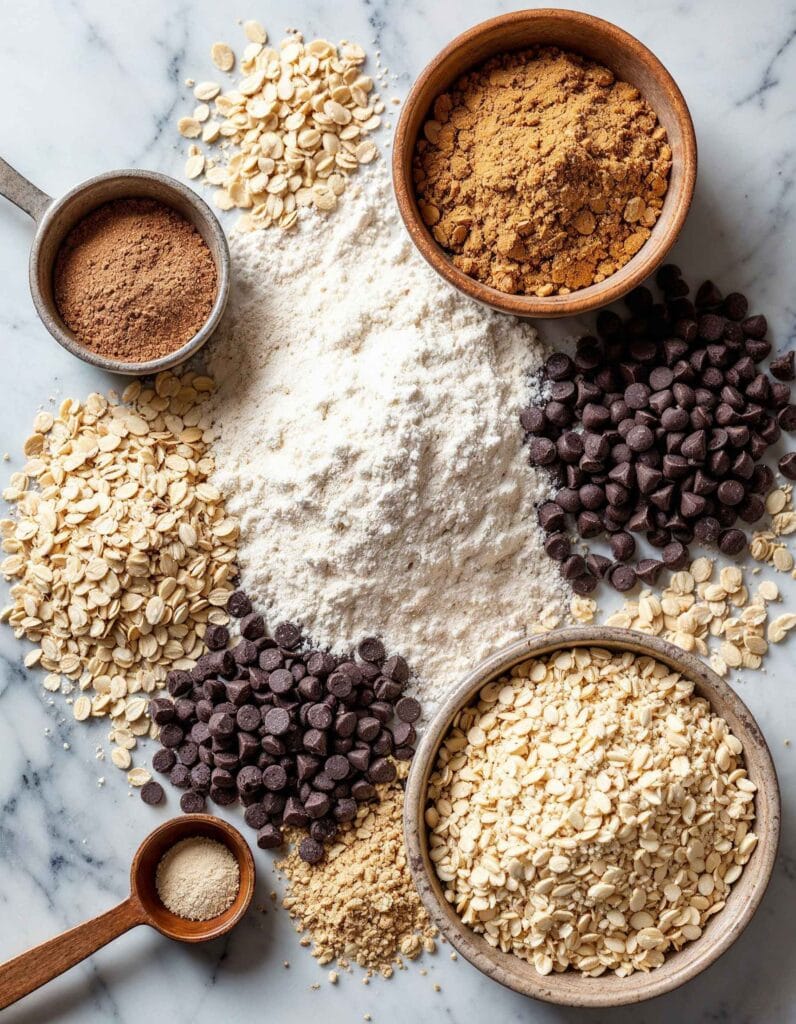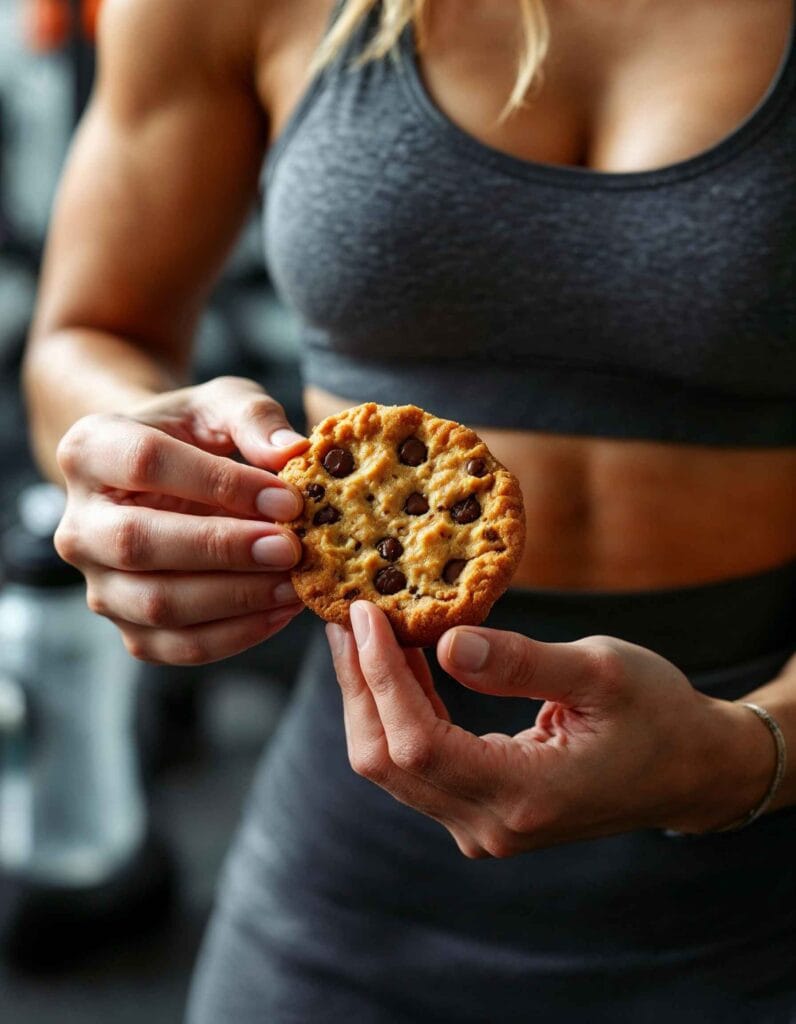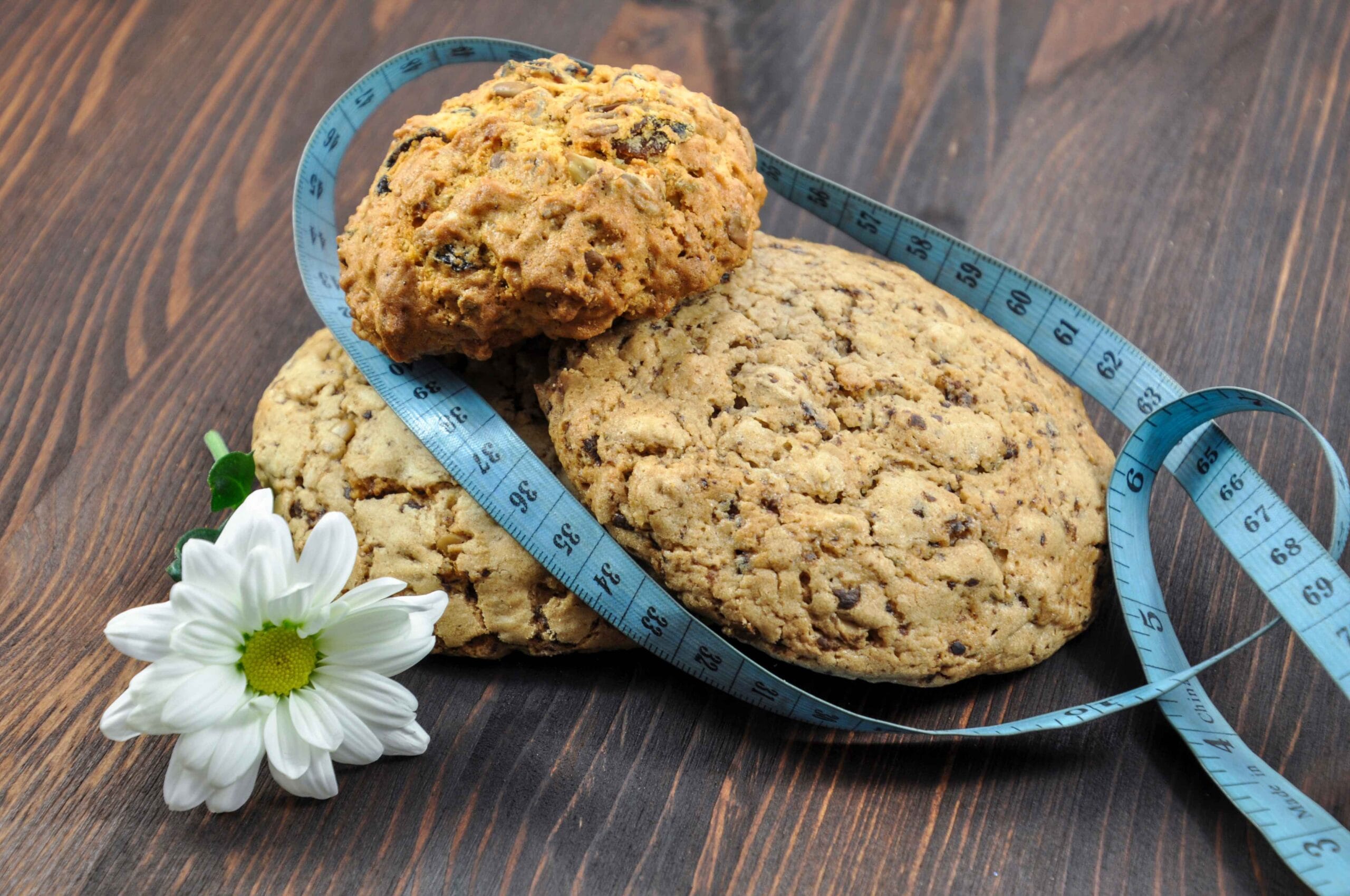Are Protein Cookies Actually Healthy?
In recent years, protein cookies have surged in popularity as a convenient, on-the-go snack touted for their health benefits. Marketed as a guilt-free indulgence packed with nutrients, they appeal to fitness enthusiasts, busy professionals, and anyone looking to boost their protein intake without sacrificing flavor. But do protein cookies truly live up to their health claims?
This article explores the nutritional composition, health benefits, and potential pitfalls of protein cookies, helping you make an informed choice about whether these snacks deserve a place in your diet.
Stay tuned as we dive into everything you need to know about protein cookies and their role in a balanced diet.
Understanding Protein Cookies
What Are Protein Cookies?
Protein cookies are a modern twist on traditional baked goods, designed to provide a higher protein content per serving. Unlike standard cookies, which are often loaded with refined sugars and unhealthy fats, protein cookies aim to offer a more nutritious alternative. They often include ingredients such as whey protein, plant-based protein powders, or egg whites to increase their protein levels.
These cookies come in various flavors, ranging from chocolate chip to peanut butter, catering to diverse taste preferences. Their appeal lies in their versatility—whether as a pre-workout snack, a post-workout recovery treat, or simply a healthier dessert option.

Nutritional Composition of Protein Cookies
The nutritional profile of protein cookies varies significantly depending on the brand, recipe, and ingredients. Here’s a general breakdown of their key components:
- Protein Content: Typically ranges from 10g to 20g per cookie, making them comparable to protein bars.
- Calories: Most protein cookies fall within the 200-400 calorie range per serving, depending on the size and added ingredients like chocolate or nuts.
- Carbohydrates: Includes sugars and fiber. Some brands add refined sugars, while others use sugar substitutes like stevia or erythritol.
- Fats: Often a mix of healthy fats (from nuts or seeds) and added fats like coconut oil or palm oil.
- Micronutrients: Some protein cookies are fortified with vitamins and minerals, such as calcium, iron, or B-vitamins.
Common Ingredients in Protein Cookies
While protein cookies differ in composition, these ingredients are frequently used:
- Protein Sources: Whey protein isolate, casein, pea protein, or soy protein.
- Sweeteners: Cane sugar, honey, or artificial options like sucralose or monk fruit extract.
- Binders and Flavors: Almond flour, oats, cocoa powder, vanilla extract, and natural or artificial flavorings.
- Fats and Oils: Nut butters, coconut oil, or butter substitutes for texture and taste.
Understanding these ingredients is essential for determining whether a particular protein cookie aligns with your health and dietary goals.
Health Benefits of Protein Cookies
Discover if protein cookies can actually fill you up and curb cravings.
The Role of Protein in a Healthy Diet
Protein is a vital macronutrient essential for numerous bodily functions, including muscle repair, hormone production, and immune support. Incorporating protein-rich snacks like protein cookies can help:
- Muscle Recovery and Growth: Protein cookies can be a convenient post-workout option to replenish amino acids needed for muscle repair.
- Satiety and Appetite Control: Protein digests slower than carbohydrates, promoting feelings of fullness and reducing the likelihood of overeating.
- Energy Levels and Performance: Balanced protein intake supports sustained energy release and helps maintain blood sugar stability.
Comparing Protein Cookies to Regular Cookies
When it comes to nutrition, protein cookies generally have a competitive edge over traditional cookies. Here’s how they stack up:
| Category | Protein Cookies | Regular Cookies |
|---|---|---|
| Protein Content | 10-20g per serving | Minimal (1-2g per serving) |
| Sugar Levels | Low to moderate (often includes alternatives) | High, primarily from refined sugars |
| Fiber Content | May include added fibers for digestive health | Low, unless made with whole grains |
| Fats | Often incorporates healthy fats like nut butter | High in saturated fats from butter |
| Calories | Controlled, with some brands offering low-calorie options | Often calorie-dense with little nutritional value |
Key Benefits of Choosing Protein Cookies
Protein cookies offer more than just a sweet treat. Some of their health advantages include:
- Nutrient-Dense Snacking: Protein cookies are often fortified with vitamins and minerals, making them a better alternative to empty-calorie snacks.
- Convenience: Perfect for busy lifestyles, protein cookies can be easily carried and consumed on the go.
- Weight Management Support: With their higher protein and fiber content, these cookies can curb cravings and help maintain a calorie deficit.
- Versatility in Diets: Many options cater to specific dietary needs, such as gluten-free, keto, or vegan preferences.
Protein Cookies for Fitness Enthusiasts
For athletes and gym-goers, protein cookies can be particularly advantageous. They offer a quick source of protein for muscle recovery and glycogen replenishment. When combined with a balanced diet, they can enhance physical performance and support fitness goals.

Potential Drawbacks of Protein Cookies
Added Sugars and Artificial Ingredients
While protein cookies are marketed as a healthy alternative to traditional snacks, they are not immune to some common pitfalls:
- Hidden Sugars: Some brands add high levels of refined sugar or syrups to enhance flavor. Even when marketed as “low sugar,” cookies may contain sweeteners like maltitol or agave syrup, which can spike blood sugar levels.
- Artificial Additives: Ingredients like artificial sweeteners (e.g., sucralose or aspartame), synthetic flavorings, or preservatives may be included to improve taste, texture, or shelf life. These additives may not align with a clean-eating philosophy and could lead to digestive discomfort for some people.
Overeating and Misconceptions
The label “protein” can sometimes create a health halo effect, causing consumers to view the product as guilt-free and overindulge. Despite their higher protein content, protein cookies often remain calorie-dense. Eating them in excess can contribute to:
- Caloric Surplus: Consuming multiple cookies without accounting for their calorie content may hinder weight-loss efforts or lead to weight gain.
- Imbalanced Nutrition: Relying too heavily on protein cookies can displace more nutrient-dense whole foods, such as fruits, vegetables, and lean proteins.
Quality of Ingredients
Not all protein cookies are created equal, and some brands use low-quality ingredients to cut costs. Common concerns include:
- Low-Quality Proteins: Some cookies use protein blends with fillers that may lower the bioavailability of the protein.
- Palm Oil and Trans Fats: These unhealthy fats can sometimes be hidden in the ingredient list, negating potential health benefits.
- Lack of Fiber: While some protein cookies add dietary fiber, many lack sufficient amounts, making them less beneficial for digestion and gut health.
Digestive Issues
High-protein snacks, especially those containing sugar alcohols like erythritol or xylitol, may cause digestive discomfort, including bloating, gas, or diarrhea, in sensitive individuals. Overconsumption of such ingredients can exacerbate these issues.
Limited Micronutrients
Although protein cookies may be rich in protein, they often fall short in providing other essential nutrients like vitamins, antioxidants, and healthy fats. Whole-food snacks, such as nuts or fruits paired with yogurt, often deliver a more balanced nutrient profile.
Are All Protein Cookies Equally Healthy?
The wide variety of protein cookies on the market means their nutritional quality can vary drastically. For instance:
- Some cookies focus on minimal, whole-food ingredients, catering to health-conscious consumers.
- Others prioritize flavor over nutrition, making them less healthy than advertised.
Ultimately, understanding the ingredient list and nutritional label is key to making an informed choice.
How to Choose Healthy Protein Cookies
Learn what makes a cookie the healthiest option for your diet.
Key Factors to Consider
Selecting a healthy protein cookie can be a challenge due to the variety of options on the market. Here are some essential factors to evaluate:
- Protein Content:
- Look for cookies with at least 10g of protein per serving to ensure a significant protein boost.
- Check the protein source—whey, casein, or plant-based proteins are generally more bioavailable than blends with fillers.
- Sugar Levels:
- Opt for cookies with minimal added sugar (less than 5g per serving).
- Be cautious with artificial sweeteners, as they may cause digestive discomfort in some people.
- Ingredients:
- Choose cookies made from whole-food ingredients, such as oats, almond flour, or natural sweeteners like honey or maple syrup.
- Avoid those with artificial flavors, trans fats, or palm oil.
- Fiber Content:
- Fiber is essential for digestive health. Select cookies with at least 3g of fiber per serving to enhance satiety and support gut health.
- Caloric Content:
- Consider your dietary goals when assessing calorie counts. Look for options with 200-300 calories per serving for a balanced snack.
Decoding Labels and Marketing Claims
Understanding food labels is critical to avoid falling for misleading marketing claims. Here’s how to read them effectively:
- Beware of Buzzwords: Terms like “all-natural” or “low-fat” don’t always mean healthy. Verify these claims by checking the ingredient list.
- Protein Percentage: Ensure that a significant portion of the calories comes from protein, not sugars or fats.
- Serving Size: Pay attention to serving sizes, as nutritional values may appear deceptively low if a single cookie is split into multiple servings.
Red Flags to Watch For
Avoid protein cookies that include the following:
- Hydrogenated Oils: These indicate the presence of trans fats, which are harmful to heart health.
- Excessive Sugar Alcohols: While these reduce calorie counts, they may cause bloating or gastrointestinal discomfort.
- Synthetic Additives: Overuse of artificial preservatives and colors can be a sign of heavily processed food.
Examples of Healthy Protein Cookies
Here are some ingredients to look for in healthier options:
- For Sweeteners: Coconut sugar, dates, or stevia.
- For Protein: Whey isolate, pea protein, or egg whites.
- For Healthy Fats: Almond butter, chia seeds, or flaxseed.
Brands that emphasize clean ingredients and balanced nutrition are generally more trustworthy.
Customizing Choices Based on Your Needs
Different protein cookies cater to specific dietary needs:
- For Weight Loss: Low-calorie, high-fiber options can help control cravings.
- For Muscle Building: Cookies with a high protein-to-calorie ratio are ideal for post-workout recovery.
- For Dietary Restrictions: Look for vegan, gluten-free, or keto-friendly options that suit your lifestyle.
By focusing on these criteria, you can make smarter, healthier choices when selecting protein cookies.
Homemade vs. Store-Bought Protein Cookies
Try this protein cookie recipe for a healthier homemade alternative.
Benefits of Homemade Protein Cookies
Making your own protein cookies offers a host of advantages over buying pre-packaged options. Here’s why many health-conscious individuals prefer homemade versions:
- Ingredient Control:
- You can choose high-quality, whole-food ingredients and avoid artificial additives, preservatives, or hidden sugars.
- Homemade recipes allow for customization to suit dietary preferences, such as vegan or gluten-free options.
- Nutritional Optimization:
- Adjust the macronutrient content to meet specific goals, like increasing protein or reducing carbohydrates.
- Add nutrient-dense ingredients like chia seeds, flaxseeds, or dark chocolate for added health benefits.
- Cost-Effectiveness:
- While store-bought protein cookies can be expensive, homemade versions often cost less per serving.
- Buying ingredients in bulk reduces long-term costs, especially for frequent bakers.
- Freshness and Flavor:
- Homemade cookies taste fresher and can be adjusted for sweetness or texture, creating a personalized snack that rivals store-bought flavors.

Limitations of Homemade Protein Cookies
Despite the benefits, homemade protein cookies require effort and time. Some common challenges include:
- Time-Consuming: Mixing, baking, and cleaning can be labor-intensive for busy individuals.
- Storage Concerns: Without preservatives, homemade cookies have a shorter shelf life and may require refrigeration.
- Ingredient Sourcing: Finding high-quality protein powders and other specialty ingredients can be costly or inconvenient.
Store-Bought Protein Cookies: Convenience and Variety
Store-bought protein cookies are a popular choice due to their availability and ease of use. Here’s what they offer:
- Time-Saving:
- Pre-packaged protein cookies eliminate the need for preparation, making them ideal for on-the-go lifestyles.
- Consistent Quality:
- Most brands maintain a consistent flavor and texture, which can be difficult to achieve with homemade recipes.
- Wide Range of Options:
- From vegan to keto-friendly varieties, store-bought options cater to diverse dietary preferences.
- Available in multiple flavors like chocolate chip, snickerdoodle, and peanut butter.
Downsides of Store-Bought Protein Cookies
However, store-bought cookies have some drawbacks that consumers should consider:
- Price: Premium protein cookies can be expensive, often costing $2-$4 per cookie.
- Hidden Additives: Many brands include preservatives, artificial flavors, and sugar substitutes, which may not align with clean-eating goals.
- Overprocessing: Store-bought cookies may lack the nutritional value of homemade versions due to the inclusion of refined ingredients.
Best of Both Worlds: Semi-Homemade Options
For those seeking convenience and control, semi-homemade protein cookies offer a middle ground. Use store-bought protein powder as a base and combine it with other natural ingredients to create quick, nutritious snacks.
Sample Homemade Protein Cookie Recipe
Here’s a simple recipe for nutritious, homemade protein cookies:
Ingredients:
- 1 cup almond flour
- 1 scoop (30g) of whey or plant-based protein powder
- 1/4 cup almond butter
- 1/4 cup honey or maple syrup
- 1 tsp vanilla extract
- 1/4 cup dark chocolate chips
Instructions:
- Preheat your oven to 350°F (175°C).
- Mix all ingredients in a bowl until a dough forms.
- Scoop tablespoon-sized portions onto a baking sheet lined with parchment paper.
- Flatten slightly with a fork and bake for 10-12 minutes.
- Allow to cool before serving.
Best Practices for Including Protein Cookies in Your Diet
Portion Control Is Key
Even though protein cookies are often marketed as a healthier snack, portion control remains crucial. Here are some tips to avoid overindulgence:
- Stick to One Serving: Protein cookies can be calorie-dense. Check the serving size and avoid consuming multiple servings at once.
- Use as a Supplement, Not a Replacement: Treat protein cookies as a complement to your diet rather than a substitute for balanced meals.
Timing Matters
When and how you include protein cookies in your diet can maximize their benefits:
- Pre-Workout Energy Boost:
- Opt for cookies with a balance of protein and carbohydrates to fuel your workout and enhance endurance.
- Post-Workout Recovery:
- Choose cookies with high protein content (15-20g) to aid muscle repair and recovery.
- Midday Snack:
- A protein cookie can curb hunger between meals and prevent unhealthy snacking.
Pairing Protein Cookies with Other Foods
To create a more balanced snack, pair protein cookies with nutrient-dense foods:
- With Fruits: A side of fresh fruit adds vitamins, minerals, and fiber.
- With Yogurt: Greek yogurt enhances protein content and provides probiotics for gut health.
- With Nuts: Pairing with a handful of nuts adds healthy fats and boosts satiety.
Balancing Macronutrients
While protein cookies are rich in protein, they may lack other essential nutrients. Ensure your overall diet includes:
- Complex Carbohydrates: Whole grains, fruits, and vegetables provide sustained energy and fiber.
- Healthy Fats: Avocado, olive oil, and nuts support brain health and hormone balance.
- Micronutrients: Leafy greens, berries, and fortified foods offer vitamins and antioxidants.
Who Can Benefit the Most from Protein Cookies?
Protein cookies can be a strategic addition to the diet of various individuals:
- Fitness Enthusiasts: For those focused on muscle gain or recovery, protein cookies can deliver essential amino acids conveniently.
- Busy Professionals: Protein cookies serve as a portable snack to prevent energy dips during long workdays.
- Weight Watchers: As a high-protein, low-sugar option, they can help reduce cravings and maintain a calorie deficit.
Avoiding Over-Reliance on Protein Cookies
While protein cookies are convenient, over-reliance can lead to nutritional imbalances. Here’s how to diversify your diet:
- Incorporate Whole Foods: Foods like eggs, legumes, and lean meats offer protein along with other essential nutrients.
- Rotate Snacks: Include a variety of high-protein options, such as nuts, cheese, or yogurt, to keep your diet interesting.
- Limit Frequency: Enjoy protein cookies occasionally rather than daily to avoid calorie creep or dependency.
Maintaining Long-Term Healthy Habits
Protein cookies are a tool, not a solution, for a healthy diet. To maintain long-term health, focus on:
- Meal Prep: Planning meals and snacks ahead reduces the need for convenience foods.
- Hydration: Drink plenty of water, especially if consuming protein cookies with added fiber or sweeteners.
- Exercise and Lifestyle: Pair your diet with regular physical activity and adequate sleep for holistic health benefits.

Potential Drawbacks of Protein Cookies
Added Sugars and Artificial Ingredients
While protein cookies are marketed as a healthy alternative to traditional snacks, they are not immune to some common pitfalls:
- Hidden Sugars: Some brands add high levels of refined sugar or syrups to enhance flavor. Even when marketed as “low sugar,” cookies may contain sweeteners like maltitol or agave syrup, which can spike blood sugar levels.
- Artificial Additives: Ingredients like artificial sweeteners (e.g., sucralose or aspartame), synthetic flavorings, or preservatives may be included to improve taste, texture, or shelf life. These additives may not align with a clean-eating philosophy and could lead to digestive discomfort for some people.
Overeating and Misconceptions
The label “protein” can sometimes create a health halo effect, causing consumers to view the product as guilt-free and overindulge. Despite their higher protein content, protein cookies often remain calorie-dense. Eating them in excess can contribute to:
- Caloric Surplus: Consuming multiple cookies without accounting for their calorie content may hinder weight-loss efforts or lead to weight gain.
- Imbalanced Nutrition: Relying too heavily on protein cookies can displace more nutrient-dense whole foods, such as fruits, vegetables, and lean proteins.
Quality of Ingredients
Not all protein cookies are created equal, and some brands use low-quality ingredients to cut costs. Common concerns include:
- Low-Quality Proteins: Some cookies use protein blends with fillers that may lower the bioavailability of the protein.
- Palm Oil and Trans Fats: These unhealthy fats can sometimes be hidden in the ingredient list, negating potential health benefits.
- Lack of Fiber: While some protein cookies add dietary fiber, many lack sufficient amounts, making them less beneficial for digestion and gut health.
Digestive Issues
High-protein snacks, especially those containing sugar alcohols like erythritol or xylitol, may cause digestive discomfort, including bloating, gas, or diarrhea, in sensitive individuals. Overconsumption of such ingredients can exacerbate these issues.
Limited Micronutrients
Although protein cookies may be rich in protein, they often fall short in providing other essential nutrients like vitamins, antioxidants, and healthy fats. Whole-food snacks, such as nuts or fruits paired with yogurt, often deliver a more balanced nutrient profile.
Are All Protein Cookies Equally Healthy?
The wide variety of protein cookies on the market means their nutritional quality can vary drastically. For instance:
- Some cookies focus on minimal, whole-food ingredients, catering to health-conscious consumers.
- Others prioritize flavor over nutrition, making them less healthy than advertised.
Ultimately, understanding the ingredient list and nutritional label is key to making an informed choice.
FAQs
How Healthy Are Protein Cookies?
Protein cookies can be a healthier alternative to traditional cookies, but their health benefits depend on the specific brand and ingredients. Many protein cookies are designed to offer a high-protein snack with fewer sugars and healthier fats. However, not all options are created equal. Some may still contain high levels of refined sugars, artificial ingredients, or unhealthy fats, diminishing their nutritional value.
To maximize health benefits, choose protein cookies with whole-food ingredients, low sugar content, and a protein source like whey or plant-based protein.
What Is the Lawsuit Against Lenny and Larry’s Protein Cookies?
Lenny and Larry’s faced a class-action lawsuit in 2017 alleging that their protein cookies did not contain as much protein as advertised. According to the lawsuit, independent lab tests revealed that the cookies provided less than the stated amount of protein per serving. This discrepancy raised concerns about false advertising and transparency in labeling.
In response, the company denied wrongdoing but agreed to a settlement, which included providing compensation to customers and updating their labeling practices. This case underscores the importance of reading nutritional labels carefully and understanding product claims.
Are Max Protein Cookies Healthy for Weight Loss?
Max Protein cookies can be a suitable choice for weight loss, but their effectiveness depends on your overall dietary goals and the specific cookie’s nutritional profile. Many Max Protein cookies are high in protein, which can support satiety and reduce overeating. However, some varieties may also be calorie-dense and contain added sugars, which could counteract weight-loss efforts if not consumed in moderation.
When incorporating Max Protein cookies into a weight-loss plan, opt for options with low sugar and high fiber content, and always factor in their calorie count within your daily intake.
Do Protein Cookies Build Muscle?
Protein cookies can contribute to muscle building, but they are not a magic solution. They serve as a convenient way to increase protein intake, which is essential for muscle repair and growth. For optimal results, consume protein cookies as part of a balanced diet that includes a variety of protein sources, such as lean meats, eggs, or legumes.
Pairing protein cookies with strength training is key, as resistance exercises stimulate muscle growth, and protein helps repair the muscle fibers broken down during workouts.
Find out how to substitute protein powder for flour in cookie recipes.
Conclusion
Protein cookies can be a nutritious and convenient snack, but their healthiness depends on the brand, ingredients, and how they fit into your overall diet. They offer a higher protein content than traditional cookies, making them a practical option for fitness enthusiasts, busy individuals, and anyone looking to manage cravings while boosting protein intake.
However, not all protein cookies are created equal. Some may contain excessive sugars, artificial additives, or unhealthy fats, which can diminish their benefits. To make the most of this snack, carefully read labels, prioritize whole-food ingredients, and consume them in moderation. For those with dietary restrictions or specific fitness goals, homemade protein cookies can offer greater control over ingredients and nutrition.
Ultimately, protein cookies can be a helpful tool for improving dietary habits when paired with a balanced diet and healthy lifestyle. Whether you’re aiming to build muscle, lose weight, or simply enjoy a healthier treat, they can play a role in supporting your goals—just ensure they complement, rather than replace, a varied and nutrient-rich diet.







